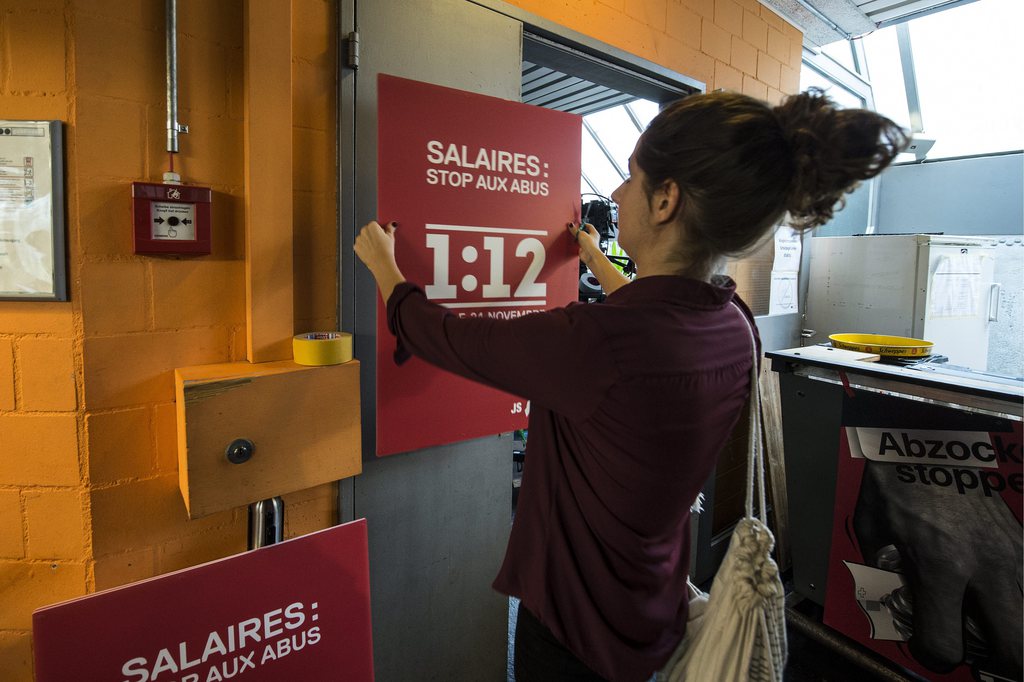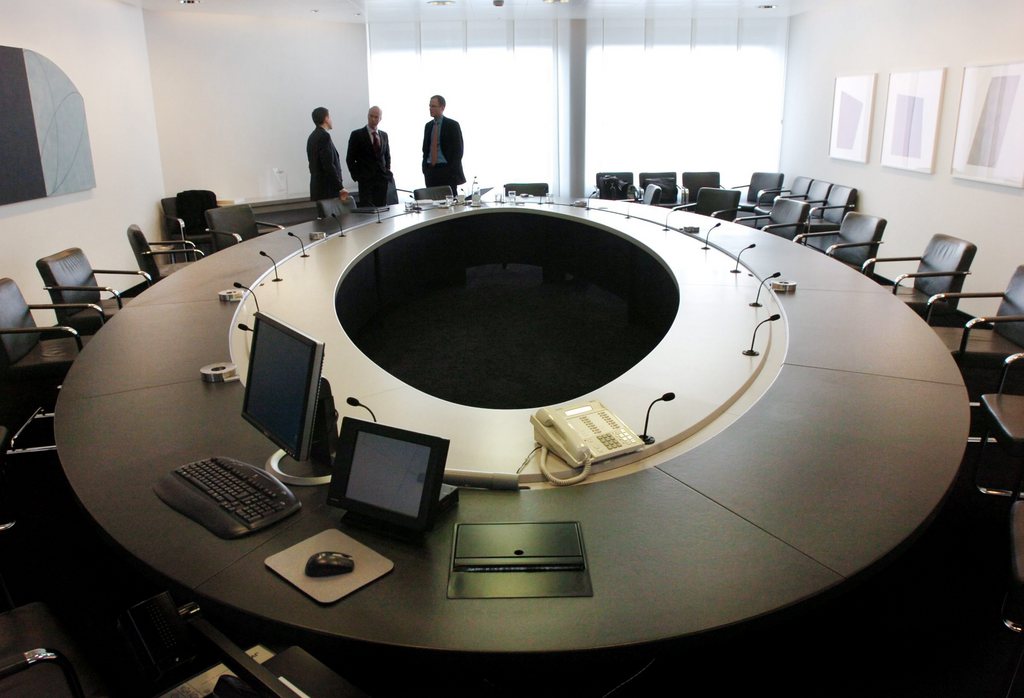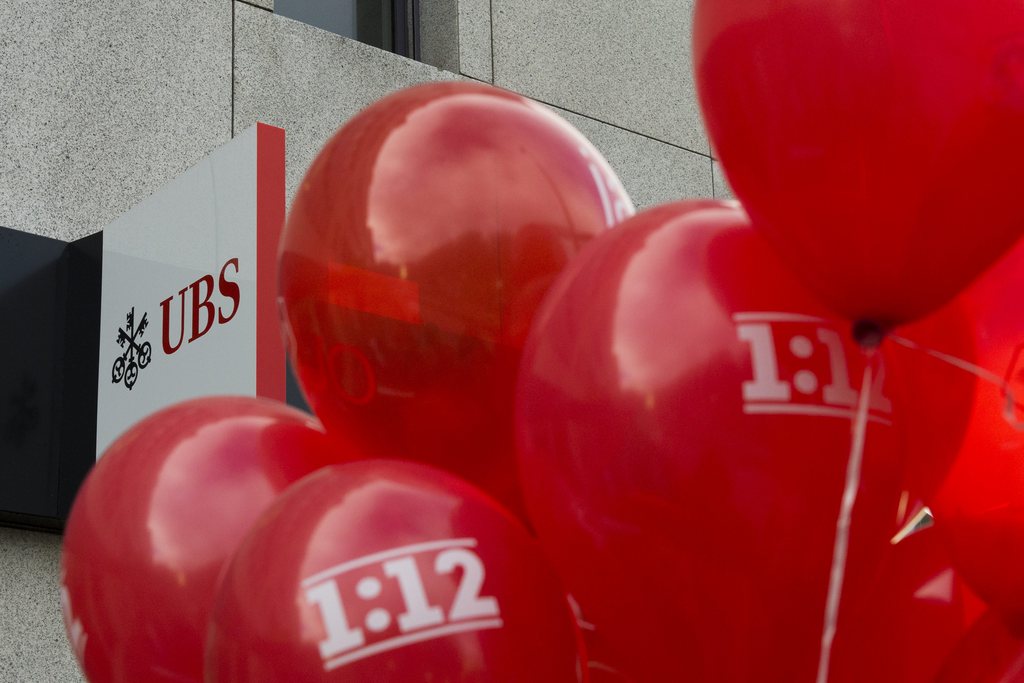Salary cap fails at ballot box

Swiss voters have rejected a proposal limiting the salaries of top executives. About two-thirds of voters said no to the Young Social Democrats' plan. The aim was to reduce the salary gap to a 1:12 ratio – in other words to limit the salaries of top executives based on the annual minimum wage of the lowest paid employee within the same company.
The vote brings to an end more than six months of intense campaigning by the youth wing of the centre-left Social Democrats who were backed by trade unions.
“We’re disappointed [we] lost today. Our opponents used scare tactics. Our fight will continue against fat cat salaries and an unfair pay system. This system has no future. We succeeded in mobilising many people and to launch a broad debate,” said Young Social Democrats president David Roth.
Political scientist Claude Longchamp said there was a clear polarisation between the political left and the right on the issue, and in these cases, it “usually results in defeat for the left”.
“It is the typical outcome for an initiative by a leftwing group,” he added, explaining that it was built on an initiative earlier this year to give shareholders a greater say on manager salaries. “In contrast to the initiative in March, the Young Social Democrats were unable to convince older voters.”
Another factor that may have worked against the 1:12 campaign, according to Longchamp, was the leftwingers’ call for direct state interference in controlling wages, while the so-called Minder initiative on shareholder empowerment favoured a more liberal policy.
An initiative to limit wages within a company at a 1:12 ratio:
Yes 34.7%
No 65.3%
A proposal to grant tax breaks for families who raise their children at home:
Yes 41.5%
No 58.5%
A plan to increase motorway fees:
Yes 39.5%
No 60.5%
Turnout: 53%
An estimated 5.2 million citizens were eligible to take part in the ballot, including registered Swiss expatriates.
The November 24 vote was the fourth and final nationwide ballot this year.
Strong defence
In the few weeks leading up to the vote, opponents – led by the business community, the government and most political parties – mounted a strong defence of the current wage system.
They warned that approval of the initiative would undermine Switzerland’s competitive edge, result in a shortfall in state revenue and impose unnecessary restrictions on relations between employers and employees in a liberal market economy.
Turnout for Sunday’s vote was higher than usual, reaching around 53% – clearly above the long-term average.
It is the latest in a series of calls to curb excessive pay packages and reduce the perceived gap between rich and poor. A separate initiative by the Trade Union Federation to introduce a minimum salary in Switzerland is likely to come to nationwide vote next year.

More
Salary limit judged too extreme by voters
Family tax breaks
Also on Sunday’s ballot was a call by the rightwing Swiss People’s Party for families to be given tax breaks if they raise their children at home, relinquishing day-care facilities.
Nearly 59% rejected the proposal, unconvinced by the People’s Party argument that the traditional family role model should be put on a par with families which send their children to nurseries, therefore entitling them to certain tax breaks.
Most political parties, the government as well as the business community and women organisations were against the proposal. They claimed it would discourage women to find work outside their homes and prompt a serious shortfall in government revenue.
“We’re very relieved. The initiative pretended to be family-friendly but was not,” said Claudine Esseiva from a cross-party women’s committee formed to fight the initiative.
A legal amendment in 2011 scrapped the preferential tax status for families which do not need external childcare facilities.
Motorway fees
In a third nationwide vote, the Swiss said no to a proposed increase in the annual motorway fee from CHF40 ($44) to CHF100 in order to fund a series of road works.
It would have been the first price hike for the mandatory sticker, known as the “vignette”, in nearly 20 years.

In compliance with the JTI standards
More: SWI swissinfo.ch certified by the Journalism Trust Initiative















You can find an overview of ongoing debates with our journalists here . Please join us!
If you want to start a conversation about a topic raised in this article or want to report factual errors, email us at english@swissinfo.ch.